INTERVIEW | Burnham throws down levelling-up gauntlet
Finalising the GMSF, launching a retrofitting revolution and creating a development corporation to drive Middleton’s regeneration are high on the newly re-elected Greater Manchester Mayor’s to-do list.
In one of his first interviews since securing a second term in office in last Thursday’s mayoral election, Andy Burnham told Place North West that Whitehall needs to collaborate more productively with Greater Manchester if Prime Minister Boris Johnson is to deliver on his election promise to ‘level up’ the regions.
“We are 18 months into this Parliament. I would imagine the Government wants some hard evidence of levelling up [success] by the time the next election comes round,” he said.
Burnham’s plan to create a “London-style transport system” for the city-region, including introducing bus franchising for the first time since deregulation in 1986, can be achieved by 2024, he said, but only with Whitehall support.
The transport strategy is “the most credible plan for levelling up that has yet been presented”, and it is in the Government’s interest to get on board, the mayor added.
“If the Government is as serious about levelling up as it says it is, it will come to the view that they have to work with us and through us.”
Pandemic platform
One contributing factor to the mayor’s re-election – and to the creation of tensions between Whitehall and Greater Manchester – was his willingness to challenge the Government on the issue of financial support for low-paid workers during the pandemic.
Burnham wanted a £90m cash boost before Greater Manchester was plunged into Tier 3 last October, but the Government was not swayed despite several high-profile national television appearances from Burnham. In many ways, that opportunity to fight Whitehall and stand up for the city region was the perfect campaigning tool.
“In the end, the job is to stand up for the region. Generally, the pandemic has shown the importance of mayors because all of a sudden there is a voice that can represent a large body of people in a way that MPs can’t.
“While I got some support for what I did, others called it grandstanding or playing politics,” Burnham said.
Whatever it was, it seemed to work. The mayor’s ‘place-first not party-first’ approach saw him pick up 67% of the overall mayoral vote last week and victory in each of the 215 voting wards.
Conservative Laura Evans was Burnham’s closest rival in the election but she received 330,000 fewer votes and, while the mayor claims he never took anything for granted, he admitted that Evans’ campaign “lacked Conservative central office credibility”.
“I certainly feel that the campaign run by [Conservative former Trafford Council leader Sean Anstee in 2017] was a more serious campaign than the one we have just seen,” Burnham said.
GMSF/Places For Everyone
When he first took office in 2017, Burnham ripped up the emerging Greater Manchester Spatial Framework and decided to start again from scratch.
Four years and countless delays later, the future of what is now known as the Places for Everyone plan is still up in the air.
Now, Burnham is determined to finally get the document over the line, maintaining that a combined spatial plan agreed between the Greater Manchester boroughs remains the right approach for the region.
“[The GMSF] should be a priority for everyone,” he told Place North West. “Even those who have concerns about it will hopefully recognise that it is better to have a planning framework in place because it protects the Green Belt from speculative development.”
The plan is also crucial in terms of demonstrating to the Government that Greater Manchester is organised and serious about emerging from the pandemic stronger, Burnham said.
“Everyone is turning their minds to recovery and levelling up is the big agenda of the Government. Greater Manchester will be in a much stronger position if we have got a clear plan.”
Middleton masterplan
Having established the Stockport Mayoral Development Corporation in 2019, plans to set up a second, similar organisation in Middleton are underway.
Burnham has already outlined his plans to create a Metrolink spur connecting Middleton with the Bury and Rochdale lines, but says transport infrastructure alone is not enough if developers are going to be enticed into the area.
The proposed new MDC would aim to knit together the transport strategy with plans for future development in and around the town.
“I am very clear that levelling up needs to take a place-based view so if I am going to be extending the tram network I need to be conscious about looking at the wider regeneration opportunities and capturing the benefits of the transport improvement,” Burnham said.
Retrofitting revolution
Next week, the Greater Manchester Combined Authority’s newly established retrofitting taskforce will meet for the first time, Burnham revealed to Place North West.
The taskforce, made up of colleges, social landlords and energy providers, aims to bring together public sector organisations to “pump-prime” the retrofitting pipeline so the private sector can get involved later down the line, the mayor explained.
Up to 60,000 buildings will need to be retrofitted in Greater Manchester every year if the city region is to achieve its target of becoming net-zero carbon by 2038, according to a report to Manchester City Council in 2019.
“The hope would be that in five or 10 years’ time retrofitting will be a well-oiled industry within the private sector,” Burnham said, adding that the industry could provide an opportunity to reposition the narrative around the climate crisis.
“If you address the housing crisis and the jobs crisis you can also address the climate crisis. Rather than viewing the climate crisis as a burden to business, we have to embrace it as the root to good jobs and homes.”
Whitehall relations
Last week’s election saw all of England’s incumbent directly elected mayors return for a second term in office, something Burnham views as a victory for devolution.
“There is an appetite for English devolution that is clearly coming through in the results. It is here to stay and is firmly on the political map of the country.”
During the tense back-and-forth between Greater Manchester and Whitehall last October, it seemed as if the country was more divided than ever, and Burnham admits to feeling as if the Government was pulling back from devolution “because they didn’t like people speaking back to them”.
However, if Johnson is to deliver on his election promise to level up the regions, he needs mayors to lead the charge locally, and in turn, they need his backing.
Burnham admits strengthening the relationship between the Government and Greater Manchester is going to be crucial if he is to make a success of his second term – which he thinks will be more challenging than his first – and deliver on his own campaign commitments.
But whether the rift between the mayor and the Government can be forgotten in the name of progress remains to be seen.
“I have got a lot of text messages on my phone [sent since the election win] that I haven’t looked at so maybe there is one lurking in there from a B Johnson, you never know.”


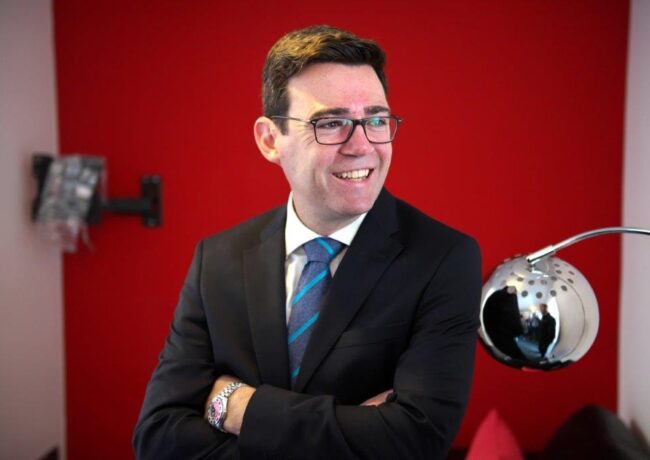
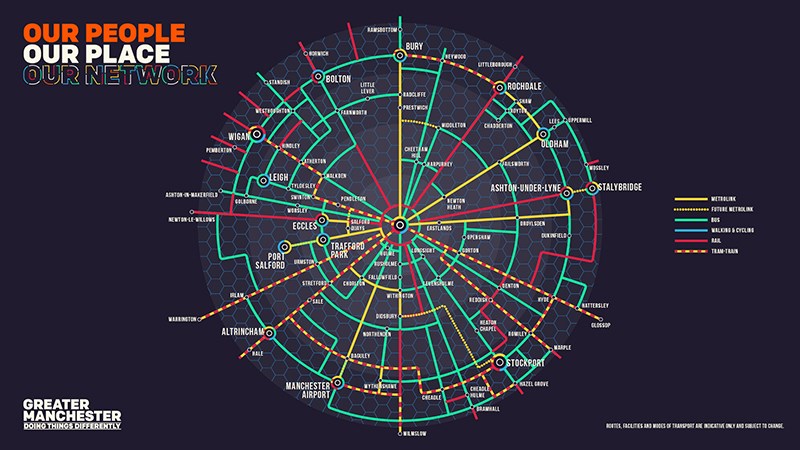
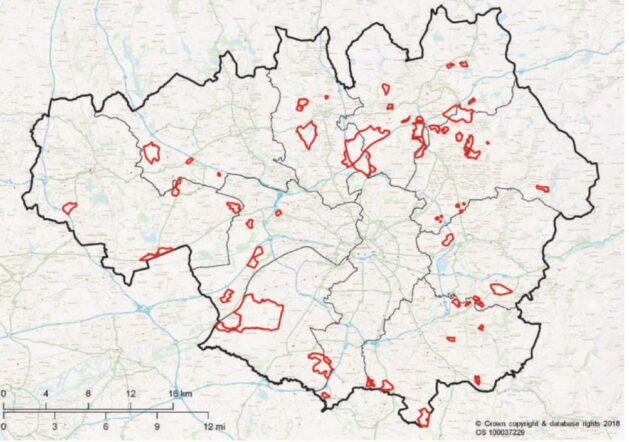
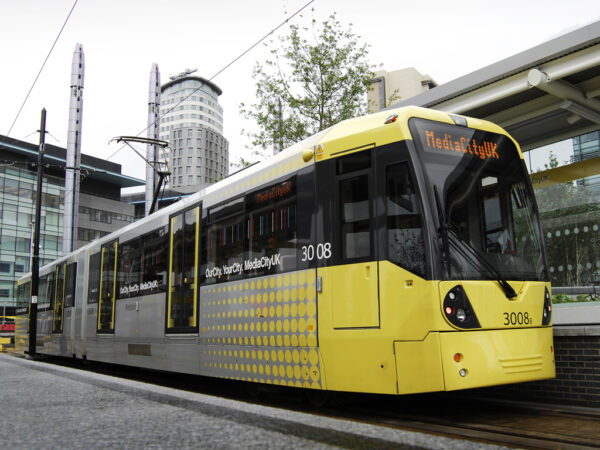
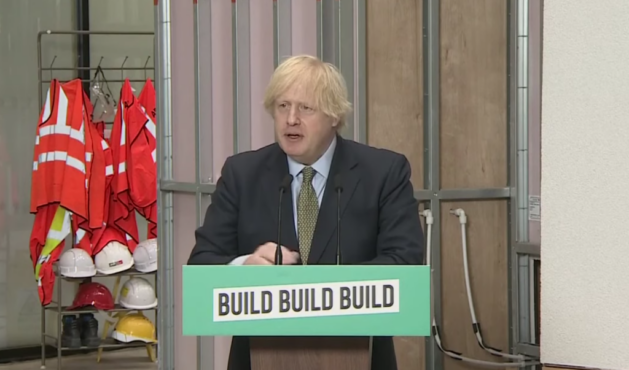

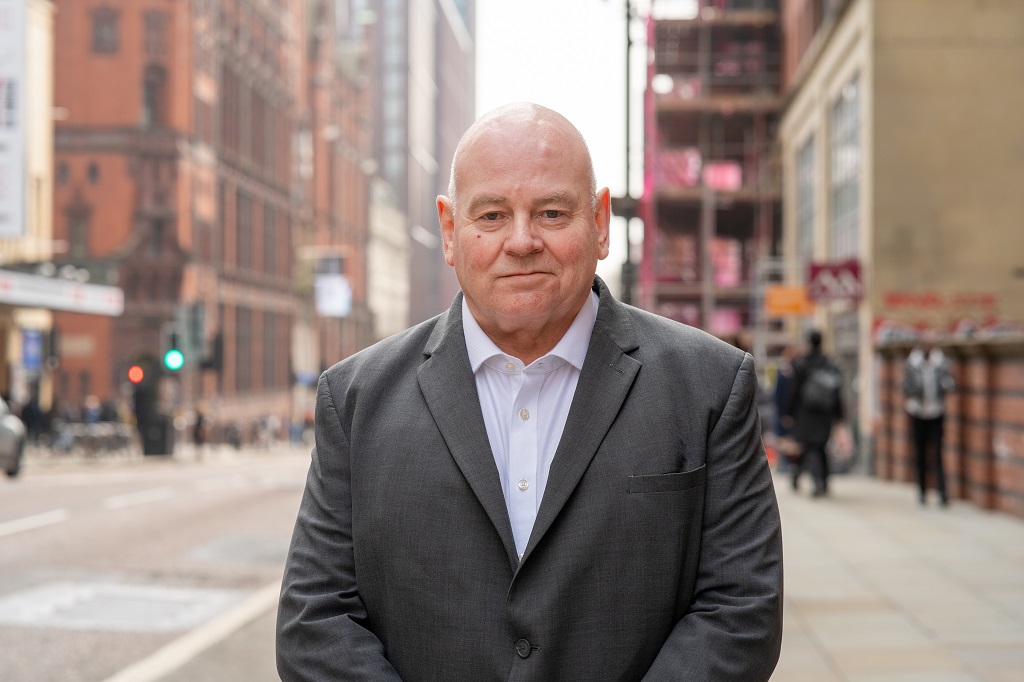
The need to retrofit 60,000 buildings a year is a task that cannot be understated. It equates to 164 buildings per day, 365 days a year. If there is any hope of achieving retrofitting at this scale we need drastic and immediate resources towards training and upskilling. The workforce required to do this simply doesn’t exist at the moment.
By NWP
The job is not just to fight for Manchester, it is also to win, unless personal PR is a greater aim. Any politician must know how to get things done. Manchester was seen to be awkward and aggressive, which may be a way to force Central government to do what it wants, but it hasn’t worked so far. Where did all the dispersed government departments go. Not to Manchester. Some serious bridge building is needed now.
Regarding retrofitting, this Industry has been developing for the past 20 years at least, largely dependent on government directed funding, and subject to regular policy swings from expansion to contraction. Very little has ever been directly installed by the public sector. Dont try to reinvent the wheel.
By Anon
With Andy Street winning the West Midlands, it is going to be hard to get anything out of this government for GM, however Middleton went Tory in 2019, so it would be wise for Boris to invest in the Metrolink Spur. Another thing that irritates me is this constant, “London style” obsession for transport .If you want to see how to run a cheap, integrated transport system, go to Berlin or Vienna. Vienna has trams, Metros and trains all interlinked and Berlin is similar. Vienna has a fast train from directly under its airport linking the city centre and you don’t have to walk for three miles to the station like you do at Manchester. London is not a good example as a role model. Yes, it’s transport is better than everyone else’s but that is because nobody else has had any investment for decades.Another thing he needs to do is level up in GM. There is heavy emphasis on Central and South Manchester, Salford and The Quays. Bolton and Wigan may as well be on the Isle of Wight, the attention they get.
By Elephant
We are in an odd place. Not sure there was an option to be emollient last year when the government tried to force a poor COVID solution on GM, but agree, on a purely pragmatic basis we need to build those bridges. Not a Tory, but Andy Street winning in Birmingham was probably a good thing long term, because it makes it very hard for the Tories to walk away from MetroMayors as an idea, but you suspect they are going to be the favourite son for a while. You suspect GM will get some of its due, but maybe not in ways that make headlines for Burnham – after all Crewe-Manchester HS2 is in the Queens Speech (all about government commitment to HS2), Sheffield-Manchester rail route upgrade got funded (packaged as a win for Sheffield). The Leeds-Manchester rail route has got £0.5BN (been sold as big deal for Kirklees) or maybe I’m being cynical.
By Rich X